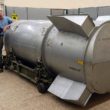If the Congressional elections of the past November 7 were an unofficial vote of no-confidence for President Bush and the Iraq War, an official one was finally delivered on February 15 by the House of Representatives when it passed a resolution disapproving of the Bush plan for a “surge” of more U.S. troops to be sent to Iraq.
Kicking off a debate on February 13 that would roll onward for three days, House Speaker Nancy Pelosi (D-CA) declared that “The American people have lost faith in President Bush’s course of action in Iraq and have demanded a new direction.” Pelosi and many of the Democratic members that followed her to the microphone said that they were simply delivering the message from the American people, expressed in the November elections, that the time has come to change course in Iraq.
Rep. Tom Lantos (D-CA), the Foreign Affairs Committee chairman, was the first of several Democratic speakers who signaled that the days of lax Congressional oversight of the war are over. Boasting that 52 hearings on Iraq had already been held in the House and Senate since the new term began, Lantos pledged that Congress “will be dealing with the Iraq issue for months to come, in fact, for as long as it takes to end this nightmare.” The resolution, he said, “will establish the first marker.”
The resolution states simply that “Congress disapproves of the decision of President George W. Bush announced on Jan. 10, 2007, to deploy more than 20,000 additional United States combat troops to Iraq.” It also says that “Congress and the American people will continue to support and protect the members of the United States Armed Forces who are serving or who have served bravely and honorably in Iraq.”
The measure passed 246 to 182, with 17 Republicans joining 229 Democrats to back what theLos Angeles Times dubbed a “rare wartime rebuke of a commander in chief.” Voting against it were 180 Republicans and two Democrats: Jim Marshall of Georgia and Gene Taylor of Mississippi.
The White House shrugged off the vote as insignificant, but the New York Times has reported that administration officials worked hard behind the scenes with Republican leaders to prevent a larger GOP defection. Some Democratic officials had been hopeful that as many as 60 Republicans would support the measure, but in the end many GOP members opposed the resolution, even as they distanced themselves from the troop increase in their speeches.
One day after the vote in the House, Democrats in the Senate lost a procedural vote that would have allowed that body to consider an identical resolution. The vote was 56 to 34, with seven Republicans crossing the aisle to vote with Democratic senators who opposed the troop buildup, but fell four votes short of the 60 needed to pass.
RELATING THE DEBATE—The House resolution, of course, was non-binding, but we found the spectacle of the three-day marathon debate to be spell-binding. With 392 members speaking, the debate was twice as long as when Congress voted in 2002 to authorize the use of force against Iraq, and we tuned in for every minute of the proceedings.
While the sheer amount of oratory was too unwieldy to recap in these pages, we bring you here excerpts of some of the speeches that we found to be most striking. Here, finally, was the debate that had been lacking in Congress for four years, but few Americans could have had a chance to witness much of it. Even the Congress itself wasn’t tuned in: Most of the speeches were delivered to a largely empty chamber. The war in Iraq is the critical issue of our time, and these voices deserve an audience.
VETERANS ON PARADE—Looking to claim the maximum amount of moral authority, both parties front-loaded their speakers lists with former members of the armed forces.
Patrick Murphy (D-PA): “I served in Baghdad from June of 2003 to January of 2004. Walking in my own combat boots, I saw firsthand this administration’s failed policy in Iraq. I led convoys up and down Ambush Alley in a Humvee without doors, convoys that Americans still run today because too many Iraqis are still sitting on the sidelines.”
John Tanner (D-TN): “The war has cost Americans almost $400 billion, with another request for $285 billion more, with no end in sight. Competent civilian leadership for our men and women in uniform on the diplomatic and political fronts must be demanded . . . if we are to properly honor the sacrifice of the dead and the wounded and their families.
“Instead, what do we have? We have unbelievable reports that the Pentagon can’t identify 170,000 guns issued to the Iraqi forces in October of 2005; some of our soldiers buying their own body armor; up-armored Humvees sitting in Bosnia and Herzegovina while we needed them in Iraq. And David Walker, the Comptroller General, says he believes that almost 30 percent of the money spent over there has been wasted, stolen, or otherwise unaccounted for.”
One Democratic vet, Jim Marshall of Georgia, broke ranks to oppose the resolution: “We’re debating today a non-binding resolution to disapprove the Iraqi–American military surge in Baghdad. . . . We do so knowing the surge has begun and will continue despite our debate and vote. We do so hoping our debate will not discourage those called upon to execute the surge, but we also do so knowing that it might. Mr. Speaker, that’s enough for me to oppose the resolution.”
FOUR YEARS HAVE TAKEN A TOLL—Many members argued that the troop surge was irresponsible simply because the U.S. military is already stretched too thin.
Neil Abercrombie (D-HI): “Extended deployments, premature redeployments and sustained combat under unbelievably harsh conditions have taken a terrible toll on our forces and their equipment. The results are an overstretched U.S. Army and Marine Corps with no fully mission-capable reserve forces, and an urgent need for billions of dollars to repair or replace worn and damaged [equipment].”
Jan Schakowsky (D-IL): “Just last month the Pentagon’s Inspector General found that the Defense Department hasn’t been able to properly equip the troops it already has with enough guns and ammunition to ‘effectively complete their missions.’ Soldiers are short body armor, armored vehicles, and communications equipment. Imagine! This war is costing $12 millionevery hour, 24/7, for four yearsmore than half a trillion dollarsand our soldiers don’t have enough body armor, ammunition and communications equipment? If our troops aren’t the priority, who is? Halliburton, Blackwater, other corporate chums of the President?”
Michael Honda (D-CA): “Is this how we should treat those who put their life on the line for our country? The Veterans Administration recently testified that it needs a 13 percent increase in funding to address rising costs and increased demand, but the President’s budget proposes less than half of that. And now the president wants to further escalate the strain on our already over-extended system by sending more soldiers off to Iraq?”
REPUBLICAN DEFECTORS—The GOP members who supported the resolution were divided between traditional isolationists, who opposed the Iraq invasion from the beginning, and early proponents of the war who have been disillusioned by four years of bitter experience.
Ric Keller (R-FL): “Imagine your next-door neighbor refuses to mow his lawn and the weeds are all the way up to his waist. You decide you are going to mow his lawn for him every single week. The neighbor never says thank you, he hates you, and sometimes he takes out a gun and shoots at you. Under these circumstances, do you keep mowing his lawn forever? Do you send even more of your family members over to mow his lawn? Or do you say to that neighbor, you better step it up and mow your own lawn, or there are going to be serious consequences for you?”
Ron Paul (R-TX): “Unfortunately, we continue to concentrate on the obvious mismanagement of a war promoted by false information and ignore debating the real issue, which is this: Why are we determined to follow a foreign policy of empire building and preemption, which is unbecoming of a constitutional republic?”
John Duncan (R-TN): “It is certainly no criticism of our troops to say that this was a very unnecessary war. It has always been more about money and power and prestige than any real threat to us or to our people. This war went against every traditional conservative position I have ever known.”
Tom Davis (R-VA): “From here, the surge looks much more like the status quo on steroids than a serious alternative policy to reach a realistic goal.”
Bob Inglis (R-SC): “It is a neocon mistake to charge our warfighters with building an Iraqi national consensus. Iraqis must decide for themselves if they want to live in a unified, pluralistic, and peaceful Iraq. No amount of American military might can compel that result.”
A FAILED STRATEGY—With so many members rising to assail the Bush war policy, the speeches inevitably began to echo each other. But several unifying themes emerged.
Diana DeGette (D-CO): “Hope is not a strategy. The escalation of troop levels makes no strategic sense. We must not hesitate to describe the President’s policy in words that are honest and clear. We confront a policy that is wishful thinking, not realistic assessment.”
Marty Meehan (D-MA): “I see a President . . . desperate to divert attention away from the missteps, away from holding people accountable, and to just hold on to Iraq as long as he can and let the next administration deal with it.”
Jim Moran (D-VA): “Some will argue that [this] is a non-binding resolution, that it will not have the impact of a law, that it will not stop a roadside bomb or bring a single soldier home to their family. But the President understands what this resolution means. It is the beginning of the end of this wrong war of choice.”
Alan Mollohan (D-WV): “The President [says] that those who support this resolution are prejudging a plan that hasn’t even been ‘given a chance to work.’ He makes that charge with a tone of wonderment, as though somehow it weren’t our duty to anticipate the consequences of different courses of action and avoid the bad ones before embarking on them. If more of us had prejudged his 2002 decision taking us to war before it was ‘given a chance to work,’ we wouldn’t be having this debate today.”
David Price (D-NC): “Some have argued that our troops must remain in Iraq to prevent intolerable outcomes. But the outcomes that we have most feareda civil war, a training ground for terrorists, an ascendant Iran—have already become reality, despite the continuing presence of our troops.”
Jesse Jackson, Jr. (D-IL): “We should not send more of our soldiers to the desert on a mission that shifts like the sands beneath their boots. . . . Rather than a military escalation, this situation in Iraq requires a diplomatic and political intensification. . . . The Iraqi government must engage in negotiations and compromises that balance the power of provincial and central governments, share oil revenues and protect the rights of every Iraqi citizen.
Dan Boren (D-OK): “The Iraq of today is vastly different from the Iraq we entered nearly four years ago, yet our strategy remains the same. We need to succeed in Iraq, but we need to redefine what success really is. [Using] some of the more than 140,000 troops we already have in Iraq to secure the Iranian border would do more to further our goals in Iraq than sending more Americans into Baghdad.”
Rush Holt (D-NJ): “No one will look back and say, if only the American military stayed a little longer. No, historians will look back and ask what took Congress so long to recognize a disaster and do something about it.”
Raúl M. Grijalva (D-AZ): “I will not spend time assessing blame and responsibility for the quagmire that our nation finds itself in, in Iraq. But I do find it curious that the opponents of this resolution want us to believe that the history of the Iraq War begins today. That it has no past—only a doubtful future. . . . Rest assured that history will not be kind to the decision-makers and deciders of this war. Nor will it be kind to a Congress that looked the other way.”
THE NEXT VOTE WILL BE BINDING—Republican members repeatedly warned that the resolution was a covert first step toward the House leadership’s real goal of cutting off funding to the troops. Democrat after Democrat vociferously denied that charge. But while the party unanimously affirms that it won’t abandon troops deployed in Iraq, it has yet to reach a consensus on how to use the budgetary powers of Congress to hasten the war’s end.
Rep. John Murtha (D-PA) has moved a popular proposal to scale back the war by withhold funding for extending any unit’s tour in Iraq beyond one year or redeploying any unit that has had less than a year off between tours. Other Democrats endorse a more aggressive push to end the war. The first true test, they argue, will be in refusing to vote for appropriations to pay for the troop surge. “Each and every time Congress votes to fund the war,” said Rep. Dennis Kucinich, of Ohio, a leading anti-war Democrat, “it votes to reauthorize the war.” The party leadership is currently working to hash out some kind of compromise.
Jim McDermott (D-WA): “The American people want this Congress to end the war and to bring our soldiers home now, not two years from now at the end of this President’s term. . . . What we do this week is a minuscule little step. Step two will come when we get to appropriations next month.”
John Conyers (D-MI): “The ultimate, unequivocal authority of the Congress is the power of the purse. And so we must use it. . . . . Most of the American people know that there is only one way to proceed in Iraq. We must begin the phased withdrawal of American troops in the next 4 to 6 months and conclude it within the year.”
Lynn Woolsey (D-CA): “Ultimately, we must do more than send a message: we must send a convoy of military planes to bring our troops home. Together with my colleagues Ms. Lee and Ms. Waters, I have offered a plan to end this war once and for all. Our bill . . . would complete a fully funded military withdrawal from Iraq within six months of enactment.”
THE BIG PICTURE—The lives and welfare of American service men and women—and their families—were front and center throughout the long hours of debate, invoked in almost every speech from both sides of the aisle. A few speakers also eloquently drove home that what was at stake was far larger than politics.
John Lewis (D-GA): “My greatest fear is that the young people growing up in the Middle East will never forget this American invasion. My greatest fear is that they will grow up to hate our children, our grandchildren, and generations yet unborn because of what we’re doing today in Iraq.”
Gary Ackerman (D-NY): “Those of us who came of age in the sixties believing that war is the ultimate breakdown of civilized process have done the unthinkable. We trusted our leadership when we should have questioned more. We gave war a chance.”
Tammy Baldwin (D-WI): “The United States is the lone superpower in the world today. And along with that awesome power comes responsibility to humankind. America’s reason for maintaining its superpower status must be to export the best of our democratic system of governance and the hope of the American Dream to the rest of the world. But these cherished ideals cannot be exported through force. We must teach and lead by example.”






0 Comments